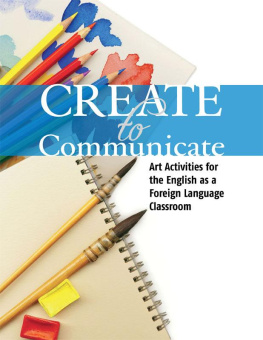Viney Kirpal - Unlock Their Future
Here you can read online Viney Kirpal - Unlock Their Future full text of the book (entire story) in english for free. Download pdf and epub, get meaning, cover and reviews about this ebook. year: 2011, publisher: Sterling Publishers Pvt Ltd, genre: Religion. Description of the work, (preface) as well as reviews are available. Best literature library LitArk.com created for fans of good reading and offers a wide selection of genres:
Romance novel
Science fiction
Adventure
Detective
Science
History
Home and family
Prose
Art
Politics
Computer
Non-fiction
Religion
Business
Children
Humor
Choose a favorite category and find really read worthwhile books. Enjoy immersion in the world of imagination, feel the emotions of the characters or learn something new for yourself, make an fascinating discovery.
- Book:Unlock Their Future
- Author:
- Publisher:Sterling Publishers Pvt Ltd
- Genre:
- Year:2011
- Rating:4 / 5
- Favourites:Add to favourites
- Your mark:
Unlock Their Future: summary, description and annotation
We offer to read an annotation, description, summary or preface (depends on what the author of the book "Unlock Their Future" wrote himself). If you haven't found the necessary information about the book — write in the comments, we will try to find it.
English is an important subject today. It is also a difficult subject to teach. Large heterogeneous classes, anachronistic syllabi, boring textbooks boringly taught and purposeless examinations demotivate students from taking English seriously at college.
In the twenty-first century there is a need for professionals to be adept at writing, speaking and understanding English because they have to communicate well with native English-speaking clients. Our graduates need to be trained in these linguistic competencies while in college.
Unlock their Future: A Skills-based Approach to Teaching and Learning English offers practical methods and strategies for preparing students from the metros as well as the small towns in English language skills required in their professional lives.
The authors sincerely hope that this book will bring freedom to many English-shy students and corporates and make this a standard for teaching of English language.
Contents:
- Spoken English: Some Remarks on the Teaching of Spoken English and Conversational English Shridhar B. Gokhale
- How Much English Speech Does a Teacher Need? Teaching Spoken English and the Indian Teacher Sudhakar Marathe
- Computer Assisted Language Learning T. Ravichandran
- Writing Skills: Everything is an Argument: A Thematic Approach to Teaching the English Course Sharmita Lahiri
- How I Teach Paragraph and Essay Writing Viney Kirpal
- Reading Skills: Teaching Prose Prabha Sampath
- Reading Better and Faster Viney Kirpal
- Note Taking Skills Niloufer Aga
- Grammar and Word Power Development
- Teaching of Grammar Shridhar B. Gokhale
- Teaching of Grammar and Vocabulary Simon G. Bernabas
- Enriching Vocabulary Shirin Shaikh
- Teaching Language to Large Classes Madhuri Gokhale
- Using a Dictionary Shridhar B. Gokhale
- Remedial English: A Case Study Viney Kirpal
- The Testing of Language Skills Shridhar B. Gokhale
- English for Professional Purposes
- Writing Emails Viney Kirpal
- English for Specific Purposes
About the Authors:
Dr. (Ms) Viney Kirpal is President of GREAT Foundation Pune, an NGO, and CEO of Global Institute of Integrated Training, a corporate training institute in Pune. She was earlier Professor of English, and Head, Humanities and Social Sciences at IIT Bombay where she taught from 1974 to 1997. Since 1998, she has trained over 7000 teachers in Effective Teaching skills and above 19,000 corporate professionals in English and other soft skills.
Dr. Shridhar B Gokhale is a Professor of English at the University of Pune. The areas of his interest are Phonetics and Spoken English, Grammar, Stylistics and ELLT. He has coordinated Pune Universitys ELT project undertaken in collaboration with the Government of UK, and the ACEN Interactive Course in Phonetics and Spoken English. He is the winner of the Principal V. K. Joag Teacher Award (2001).
Viney Kirpal: author's other books
Who wrote Unlock Their Future? Find out the surname, the name of the author of the book and a list of all author's works by series.














